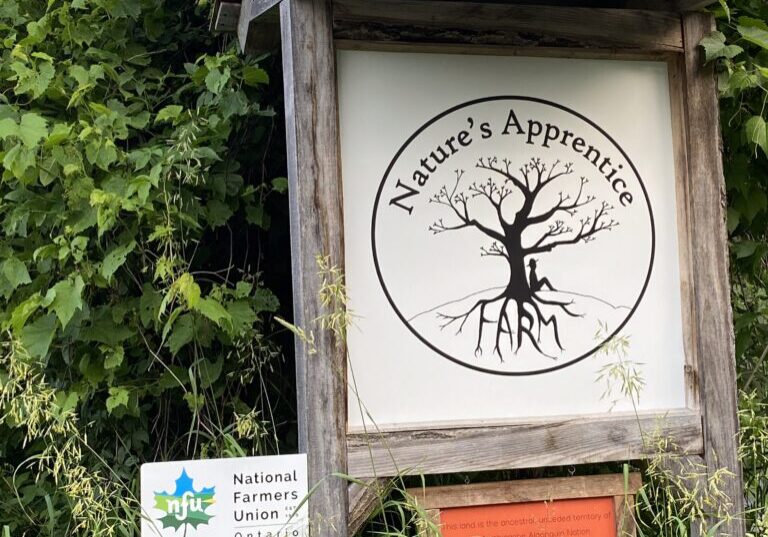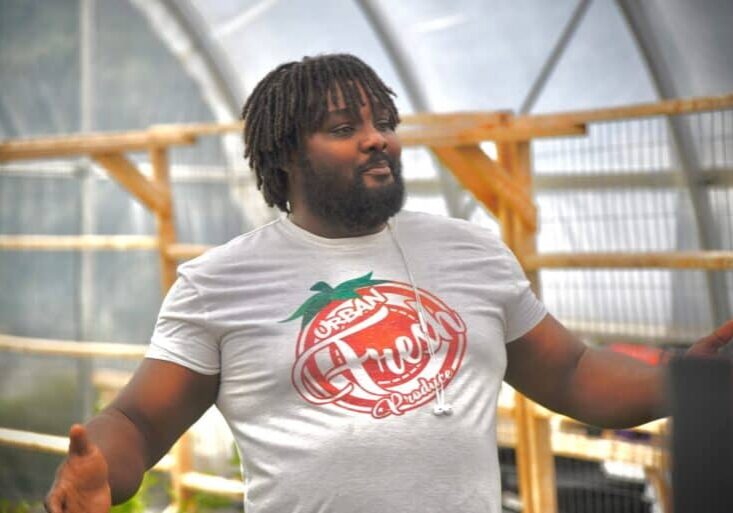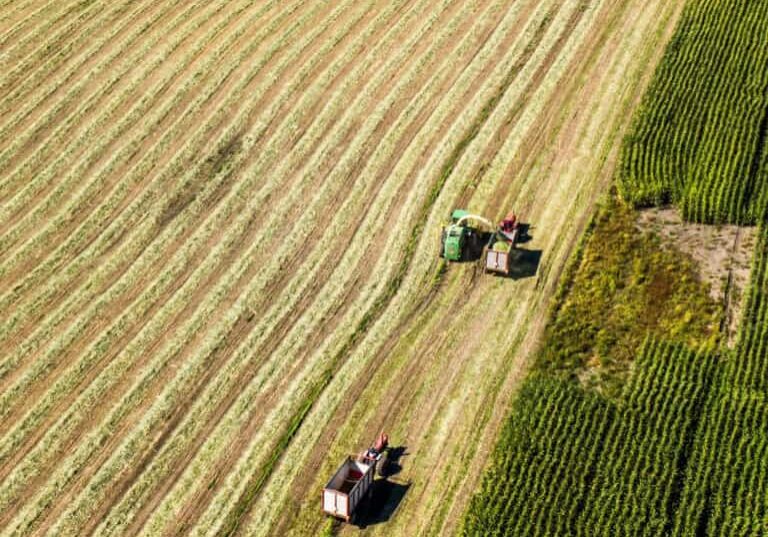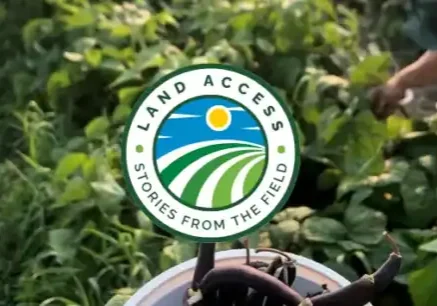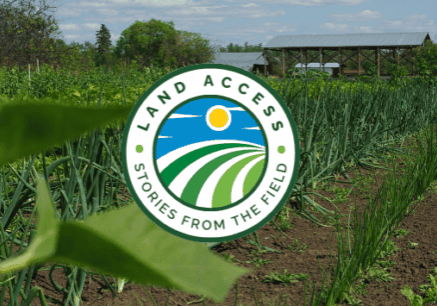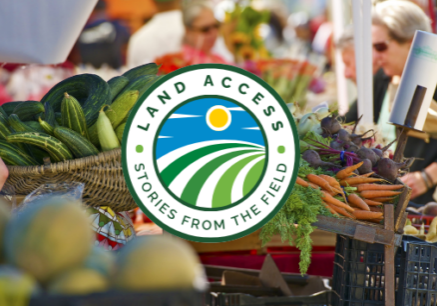Land Access Stories from the Field: Root Radical x Redwing Herb Farm
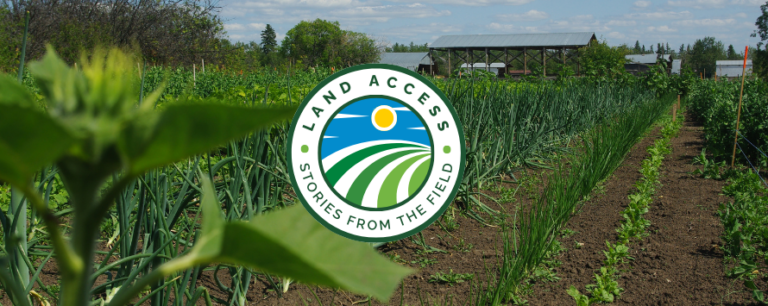
Root Radical is a local organic Community Shared Agriculture (CSA) farm on Howe Island, serving Katarokwi/ Kingston since 2007. Emily and Aric grow diverse seasonal organic produce on the farm Emily grew up on, following the Canadian Organic Standards. Emily left the farm in her early twenties to travel and pursue environmental studies at University, which eventually brought her back to the land as an organic farmer to positively impact her local community and ecosystem. Aric spent some time working on land access issues in the past, contributing expertise to the vision of sharing some of Root Radical’s land to support next generation farmers. The pair combined their shared interests in farming, community building, and social change projects, and decided to dedicate their efforts to developing a functional land-sharing model.
Emily and Aric’s situation is unique, as they operate their own farm on the land and are not close to retirement. Finding complimentary operations to their business was crucial as they began to share, so that each operation could see one another as value-added. In 2021, they began their land sharing process by bringing Redwing Herb Farm into the mix. Redwing Herb Farm grows high quality, organically grown herbs and apothecary items on ⅓ of an acre of Root Radical’s land. The farm is operated by former Root Radical employees Kathleen and Jane, who had pre-existing relationships with Emily and Aric. This helped both parties establish a strong base of trust and transparency before any land-access arrangements were made, fostering a supportive atmosphere for a new farming business to thrive in. Initially, Aric and Emily offered Redwing Herb Farm 1/8 of an acre as a trial, and referred to the Young Agrarians x NFU-O Land Access Guide (2018) for tips on writing a 2-year lease and Memorandum of Understanding (MOA). As written in the lease agreement and MOA, Kathleen and Jane were able to share the use of infrastructure, access a greenhouse space, water, tools, and gained mentorship – opportunities that were included as a direct result of their pre-existing relationship with Root Radical. Also, Kathleen and Jane commute to the farm by ferry, so sharing labour and having Root Radical available to check in on things from time to time proved to be extremely helpful as they established a new farm business.
Overall, the two parties find the relationship successful because of the trust they initially built into the land access relationship, and the complementary nature of their two businesses. Since they are not in competition with each other, Root Radical can include some of Redwing Herb Farm’s products in their CSA as a mutual benefit to both parties. They stress the importance of slow and intentional relationship building when developing land sharing relationships, as this can translate to longer lasting, supportive land access agreements. In the future, Aric and Emily hope to build more on-farm housing and learn more about best practice organizational structures for taxes, with the idea of finding other complimentary businesses to share the land with.
Root Radical’s CSA is full for the 2024 season, but you can find plants and local fair trade products for sale on their online store. Learn more about their operation and sign up for their free mini-course on how to eat seasonally using the CSA model here!
Check out Redwing Herb Farm’s products here, and if you’re local to the Katarokwi/Kingston area, benefit from local delivery options! Or, you can check them out at the Memorial Centre Farmers market.
This article is part of the series:
Land Access Stories from the Field
Accessing farmland is becoming more and more difficult due to development pressures and skyrocketing land prices. The NFU-O believes that next generation farmers should be nurtured in their quest for land access through systemic support, and are advocating for this at a provincial level. Meanwhile, just as the strongest and most resilient plants prevail under weed pressure and drought, these resilient farmers are springing up across the province by finding alternative ways to access land. Here are some examples of alternative land access methods that next generation farmers across Ontario are exploring.

